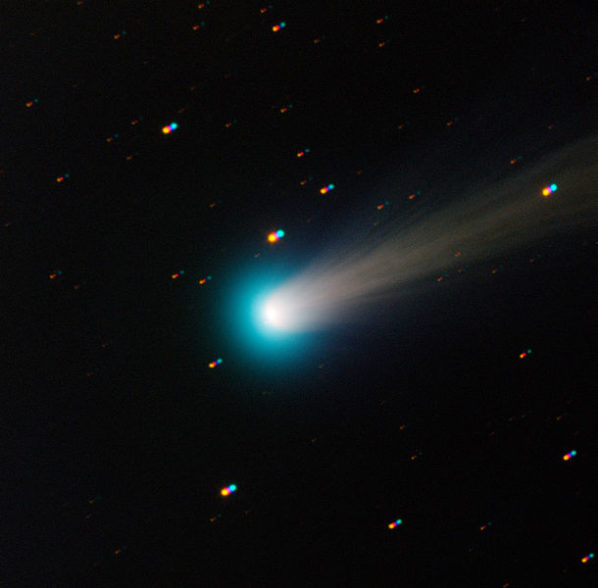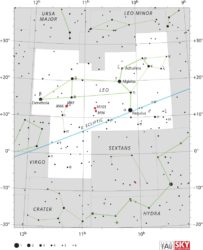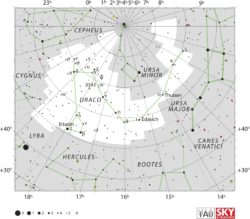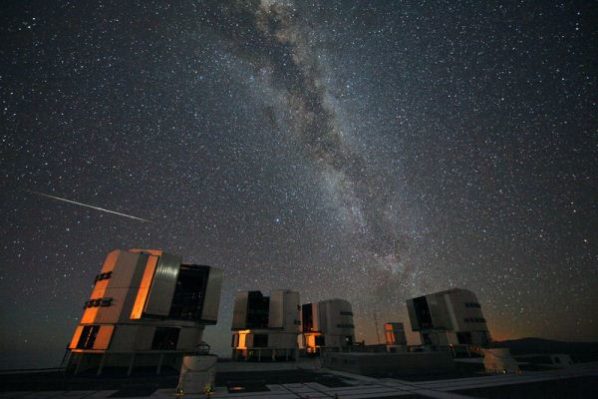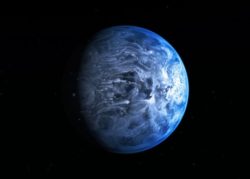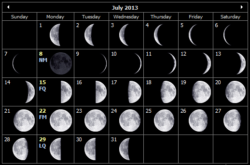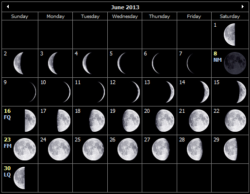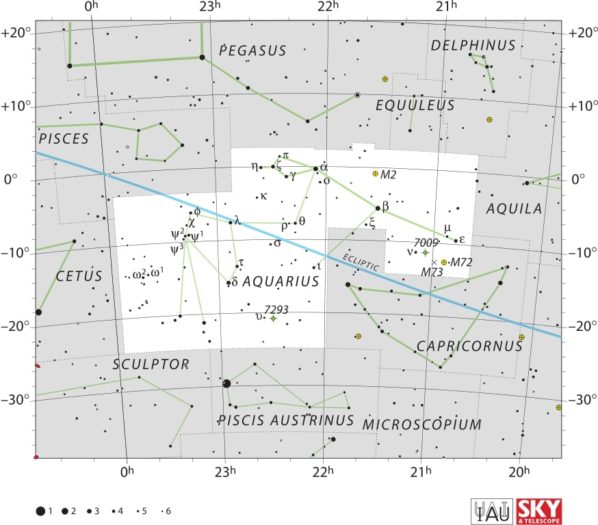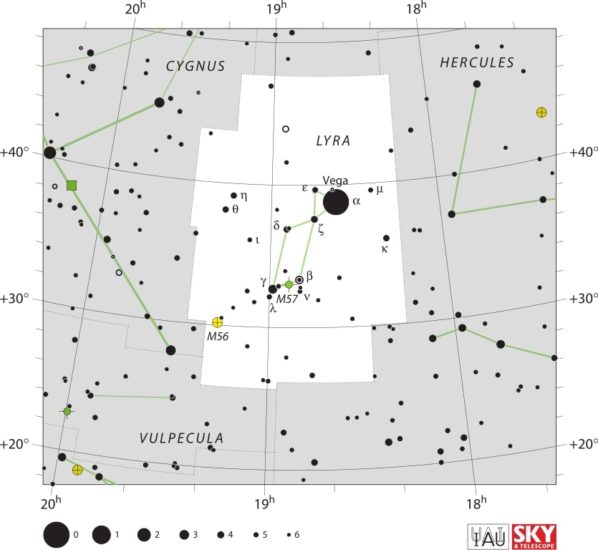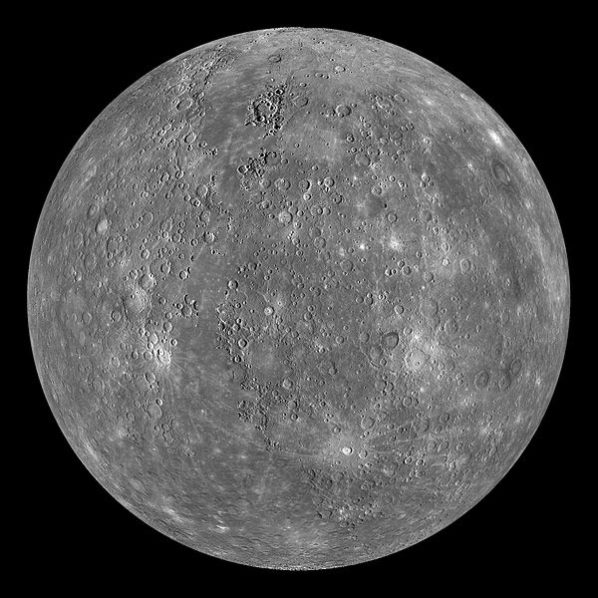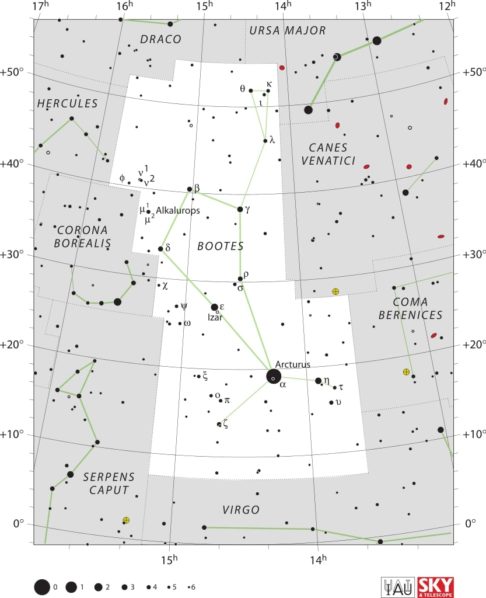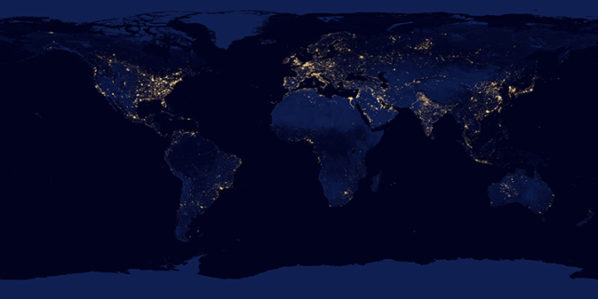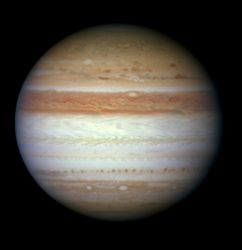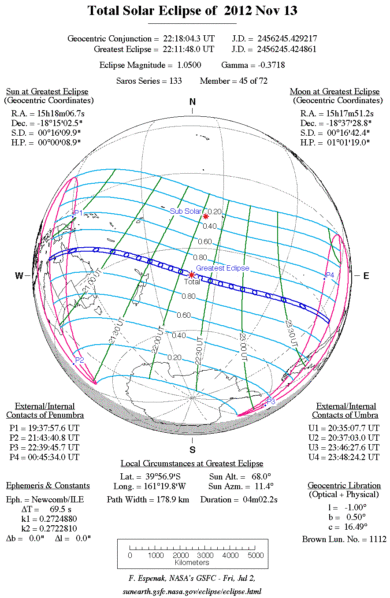Astronomy
Embark on an astronomical journey. Explore the cosmos, study celestial objects, and unravel the mysteries of the universe through astronomy's fascinating realm.
Monthly Stargazing Calendar for December 2013
Last month on Thanksgiving day comet ISON made a close approach to the Sun and unfortunately disintegrated in the process. It is possible that small pieces of the comet survived this encounter and if so, they will pass near the Earth by the end of this month.
Monthly Stargazing Calendar for November 2013
Earlier this month there were two major astronomical events: a hybrid solar eclipse on November 3rd and the Taurids meteor shower peak on the night of November 4 and 5. If you missed those two events, don't worry, there are two more coming up this month!
Monthly Stargazing Calendar for October 2013
Tonight (October 7 - 8) is the peak of the Draconids meteor shower. It is a minor meteor shower producing only about 10 meteors per hour during the peak, but some meteors can be seen one day before and after the peak. It originates from dust grains left behind by comet 21P Giacobini-Zinner, which was first discovered in 1900.
Monthly Stargazing Calendar for August 2013
Tonight (August 11 - 12) is the peak of one of the largest and perhaps one of the most famous meteor showers of the year, the Perseids meteor shower. It can produce as many as 90 meteors per hour at its peak but some meteors can be seen from July 17 to August 24. The first quarter moon will set shortly after midnight leaving dark skies for what should be an excellent show.
Blue Gas Giant Discovered in Distant Solar System
Observing starlight variations, scientists confirmed HD 189733 b as a blue planet, shedding light on exoplanet properties through host star analysis.
Monthly Stargazing Calendar for July 2013
This month there will be only one major astronomical event. On July 27, 28 we will witness the Southern Delta Aquarids meteor shower. It is an average shower that can produce up to 20 meteors per hour at its peak on the night of July 27 and morning of July 28, but some meteors can be visible from July 12 to August 23.
Monthly Stargazing Calendar for June 2013
Unlike last month, this won't be a such an eventful month when it comes to astronomical events. Mercury will be at its greatest eastern elongation and then we will have the June solstice. We will also have the largest full moon of the year.
Monthly Stargazing Calendar for May 2013
May 2013 stargazing events: There will be a meteor shower, a solar eclipse, a conjunction of Venus and Jupiter, and a penumbral lunar eclipse.
Monthly Stargazing Calendar for April 2013
This month will be quite eventful and will have many interesting astronomical events. First of all, on April 14 we will witness the conjunction of the Moon and Jupiter. The Moon will appear to pass about two degrees of the giant planet Jupiter in the evening sky. The crescent moon will be at magnitude -10.6 and Jupiter at magnitude -2.1.
Monthly Stargazing Calendar for February 2013
This month will be the best time to see Mercury. Usually the planet is very hard to observe because it orbits very close to the sun and it can only be seen at dawn and dusk. However on the evening of February 8, Mercury will be seen within less than 0.4 degrees of the much-fainter planet, Mars.
Monthly Stargazing Calendar for January 2013
On the night of January 3 and 4 the Quadrantids meteor shower will peak. It is an above average shower, with up to 40 meteors per hour at the peak. Some meteors can be visible from January 1 - 5. Unfortunately the near last quarter moon will hide many of the fainter meteors with its glare.
NASA Releases Amazing Night View of Earth
NASA's Suomi NPP satellite captures stunning night imagery, revealing societal contrasts and aiding advanced meteorological predictions.
Monthly Stargazing Calendar for December 2012
On December 3 Jupiter was at Opposition. The giant planet was at its closest approach to Earth and its was fully illuminated by the Sun. Jupiter will still be very bright in the sky for the next few weeks. This is the best time to view and photograph Jupiter and its moons.
Monthly Stargazing Calendar for November 2012
The month of November will be quite eventful when it comes to astronomical events, especially the second half of the month when we will be able to observe two eclipses, a meteor shower and a planetary conjunction. First of all, on November 13 there will be a total solar eclipse.

